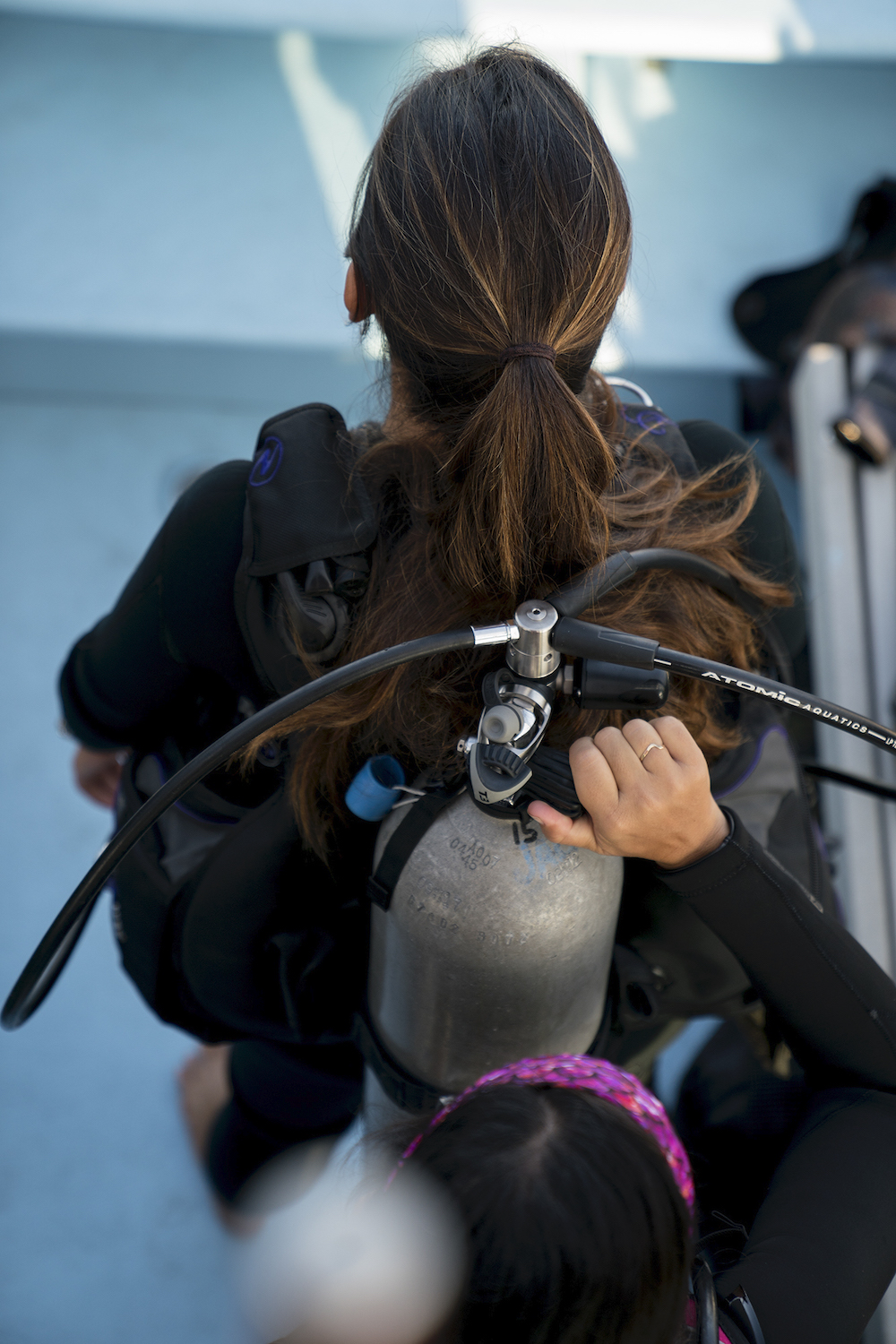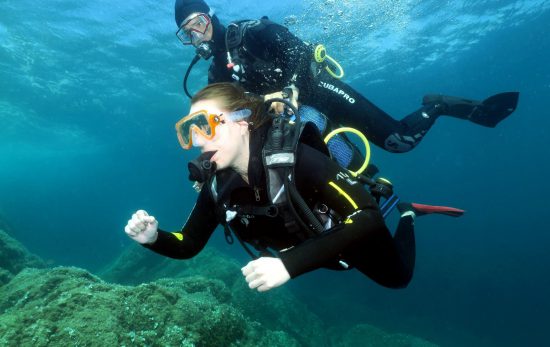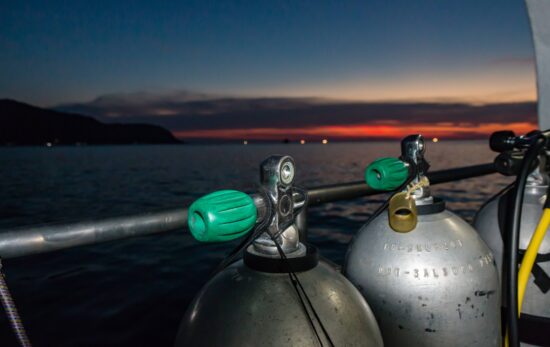Avoid these dive gear “don’ts” to ensure your equipment investment lasts a long time. These simple tips can save you thousands on gear replacement or repair. For example:
Don’t let your gear dangle – It’s bad for your equipment and can harm fragile marine life.
- Secure that alternate regulator close to your body with an octo holder
- Use clips or retractable lanyards to attach your mesh bag, noisemaker, etc. to your BC’s D-rings or straps
Don’t prop your fins up against a wall – Your scuba fins are specially engineered with an aquadynamic shape to increase propulsion and reduce drag. Propping your fins up against a wall can compromise their shape. Don’t shorten the life of your fins, always store them lying down flat, ideally with an insert in the foot pocket. If that’s not an option, the second best way to store your fins is to hang them on a wall by the fin strap.
Don’t leave dive gear out in the sun – The UV rays from direct sunlight will damage the rubber, fabric and neoprene components of your dive gear. Dry your equipment indoors or in the shade.
Don’t store wet gear – This may seem counter-intuitive, dive gear is meant to be wet, right? Yes, but so are towels and those don’t smell very nice after awhile. Bacteria and mildew will grow on damp gear, and metal parts can rust. Avoid unpleasant surprises by ensuring your gear is completely dry inside and out before packing it away.
Don’t use petroleum products or chemical solvents – Petroleum jelly will damage both rubber and silicone o-rings, and certain chemicals can destroy plastic housings. Only use products designed specifically for your equipment. When in doubt, contact the local dive center or resort where you purchase your gear.
Wetsuit Don’ts
- Never wash your wetsuit in the washing machine or put it in the dryer. Instead, soak it in wetsuit cleaner and warm water for a few minutes. Rinse and allow to dry thoroughly.
- Your wetsuit isn’t meant to be altered. Small cuts or tears can be glued, but if you need the legs shortened or sides taken in, contact a professional.
Scuba Tank Don’ts – A scuba tank may feel indestructible, but it’s still susceptible to damage. When transporting tanks, secure them in an upright position or lay flat with something on either side to protect them from rolling around. After shore diving, lay your tank down gently on the sand or ground, never drop it. A sudden impact can damage the cylinder and/or valve.
If you suspect a tank is leaking, and changing the o-ring doesn’t fix the problem, inform the dive operator, or take it to a dive shop for inspection. Do not attempt to dive with a leaky tank.

Dive Weight Don’ts – Don’t leave your weights on a table, bench, or other location where they could slide off and crush someone’s foot (or other body part). Stow your weight system and any loose dive weights in a crate, dive bag or other secure location.
Regulator Don’ts – When rinsing your regulator after a dive, pay close attention to how and where you’re grabbing hold of it. Pressing the purge button when the regulator is not pressurized may allow water to enter the valves – causing the regulator to need service.
Never try to take your scuba regulator apart. It’s a finely-tuned piece of equipment and attempting to disassemble it can void the warranty and set you up for serious trouble underwater. Leave regulator service and repair to trained professionals.
If you’re interested in learning more about the interior workings of your equipment, try the PADI® Equipment Specialist course. This one-day course counts towards your PADI Master Scuba Diver™ rating and will teach you about:
- Different types of scuba gear
- Basic equipment repairs
- The correct way to adjust and maintain your gear0Don’t buy gear from an unauthorized dealer – Local dive centers are the heart of our community, and equipment sales are their lifeblood. Before you buy from an online retailer, contact your local PADI Dive Center or Resort. They can recommend the best equipment for your local diving conditions, service your gear and give you great advice. Beware of online retailers offering low prices that are too-good-to-be-true. You may get unreliable equipment and have trouble getting an annual service.
Further Reading
7 Things That Can Destroy Your Dive Gear
Know When It’s Time to Replace Your Dive Gear
How to Properly Clean and Sanitize Dive Gear





